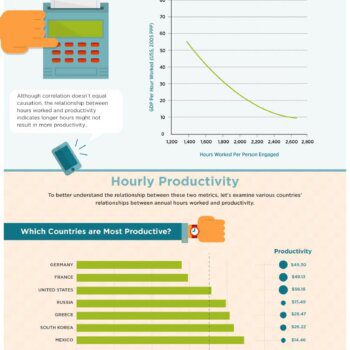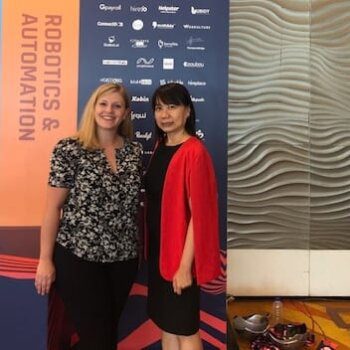(Women on Top in Tech is a series about Women Founders, CEOs, and Leaders in technology. It aims to amplify and bring to the fore diversity in leadership in technology.)
Here is my interview with Industry Researcher, Speaker, and Blogger Devie Mohan, CEO and Co-Founder of Burnmark.
What makes you do what you do?
It took me a long while to realize my true interests and passions and find the confidence to pursue them. I have combined my passion for writing, quantitative research and creative design along with my fintech industry experience to launch my venture, Burnmark. Burnmark is a fintech research company for the social media economy – we want to make data in the space easily shareable, visually impactful and easily built upon by others.
How did you rise in the industry you are in?
I was fortunate to start my career with some great firms like Goldman Sachs, IBM, SunTec, Thomson Reuters, and Ericsson. For me, the biggest change happened when I started writing about the trends I personally saw in the fintech space – some of my predictions started making sense over time and I was then seen as a thought leader and influencer in the space. I have now had the chance to do keynote speeches in most parts of the world predicting, analyzing and visualizing trends in fintech.
Why did you take on this role/start this startup especially since this is perhaps a stretch or challenge for you (or viewed as one since you are not the usual leadership demographics)?
I have never believed in a “leadership demographic” – I always looked up to leaders for their skills and ability to pursue ideas and implement decisions effectively, regardless of whether they are of a certain type, gender or ethnic origin. I think I am one of the best candidates in the field to do what I do with my startup, and don’t think it is a stretch or challenge for me personally. But I do like to set challenges for me and Burnmark personally, and constantly stretch myself.
Do you have a mentor that you look up to in your industries or did you look for one or how did that work?
I have been fortunate to have a large group of supporters around me who I have bombarded with all kinds of questions. Some people within the fintech ecosystem have helped me immensely with ideas, resources and sometimes just emotional support. I am now actively looking for a co-founder and advisory board as we are scaling up more quickly than I had initially expected.
How did you make a match if you did and how did you end up being mentored by him?
I have a group of mentors that I draw support from, and these are mostly people I have admired over the years (either in person through work, or over social media). A good mentor is someone who relates to you well, who believes in you and your business model, and of course, has enough time for you to discuss sometimes even far-fetched ideas.
Now as a leader how do you spot, develop, keep, grow and support your talent?
The biggest factor I look for in candidates (and sometimes the only one) is “drive”, or an entrepreneurial spirit. We can learn all skills along the way, but it is much harder to learn or unlearn attitudes.
I work in a very flexible way, and ensure all my team members have a great environment for learning and doing what they enjoy doing. Everything else just falls into place when we get close to deadlines.
Do you consciously or unconsciously support diversity and why?
I think diversity is absolutely important for a successful working environment. We are still fairly small with an equal distribution of gender, but as we grow to about 10 employees, I will absolutely ensure we have a diverse representation. The most obvious diversity representation could be based on gender or country of origin, but to me, what is equally important is having a representation of different thought processes. It is not just important to have women in the room, but also important to have women who think differently from each other in the room. That is what will ensure we are a true success story.
What is your take on what it takes to be a great leader in your industry and as a general rule of thumb?
I think being a great leader is about building your following – you are personally responsible to employees, investors, stakeholders, clients and even your social media following. That is a lot of responsibility, and a leader has to manage this expectation, inspiring all around her to come towards common goals while also dealing with very tactical challenges. I cannot underestimate the importance of ethical thinking, transparency and balanced judgments as personality traits for a good leader.
Advice for others?
Grab opportunities – it is easy to let go of opportunities saying “not my skillset”, “don’t like the city” etc., but take a bigger picture of your decision and say yes to as many things as you can. It may burn you out, but nothing can beat the experience of having tried out a hundred different things. I took on opportunities to work in Sweden, Arkansas, Trivandrum, Washington, D.C. etc., before I settled in London, and this exposure to the cities big and small, companies big and small, helps me immensely as a global leader today.
To learn more about Burnmark, please see http://burnmark.com.
I am a huge fan and cheerleader of Women Leaders — If you know of an AMAZING Woman Founder, CEO, Leader in Tech or you are one yourself — Write me here.
AMPLIFY Conscious Business Leadership with me.






























